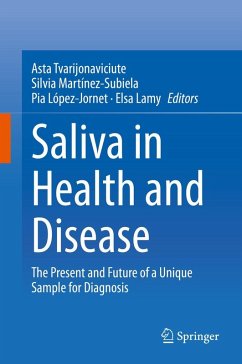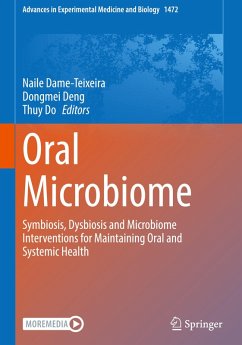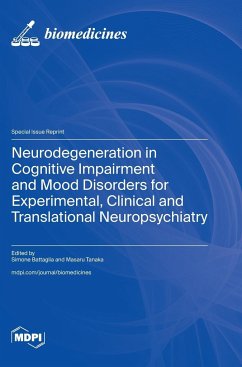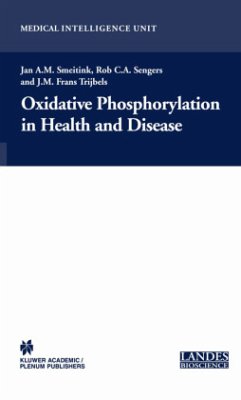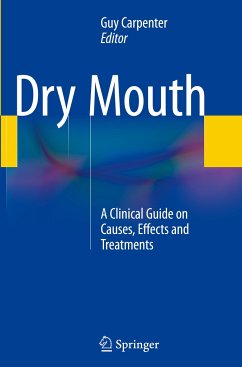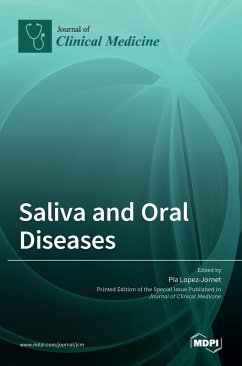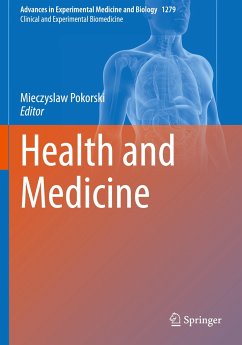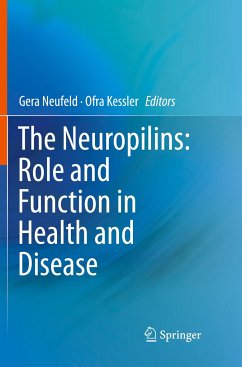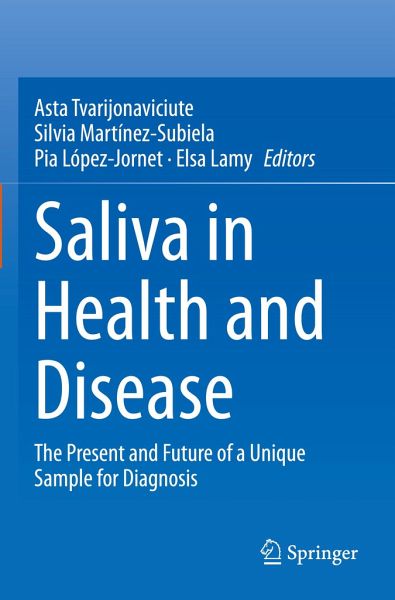
Saliva in Health and Disease
The Present and Future of a Unique Sample for Diagnosis
Herausgegeben: Tvarijonaviciute, Asta; Martínez-Subiela, Silvia; López-Jornet, Pia; Lamy, Elsa
Versandkostenfrei!
Versandfertig in 6-10 Tagen
113,99 €
inkl. MwSt.

PAYBACK Punkte
57 °P sammeln!
Saliva as a unique sample for health assessment is gaining attention among researchers of different fields in the last 20 years; being reflected in an impressive increase in the number of papers published studying saliva from different biological aspects in human and veterinary species. Once deemed merely a digestive juice is now considered a biological fluid capable of communicating information about physiopathological processes occurring in organisms, since saliva has been shown to contain molecular and bacterial compounds that can change in response to local and systemic pathologies. Furthe...
Saliva as a unique sample for health assessment is gaining attention among researchers of different fields in the last 20 years; being reflected in an impressive increase in the number of papers published studying saliva from different biological aspects in human and veterinary species. Once deemed merely a digestive juice is now considered a biological fluid capable of communicating information about physiopathological processes occurring in organisms, since saliva has been shown to contain molecular and bacterial compounds that can change in response to local and systemic pathologies. Furthermore, the interest of saliva as a diagnostic, prognostic and monitoring biofluid is forced by its non-invasive nature being of easy and inexpensive sampling, involving only minimal discomfort and allowing the collection of multiple/repeated specimens at anytime, anywhere and without need for specialized staff.
In this contributed volume, the authors bring together, summarizeand reflect the generated knowledge about saliva as a source of biomarkers for health and welfare evaluation in humans and animal models. This volume also highlights the importance of confounding factors, such as sampling methods, flow, total protein content, contamination, or storage. This book will serve as a manual for graduates, practitioners and researchers by providing general ideas about the possibilities and utilities of saliva in clinical practice or investigation, and indicating the main cautions each should have in mind before saliva usage.
In this contributed volume, the authors bring together, summarizeand reflect the generated knowledge about saliva as a source of biomarkers for health and welfare evaluation in humans and animal models. This volume also highlights the importance of confounding factors, such as sampling methods, flow, total protein content, contamination, or storage. This book will serve as a manual for graduates, practitioners and researchers by providing general ideas about the possibilities and utilities of saliva in clinical practice or investigation, and indicating the main cautions each should have in mind before saliva usage.





